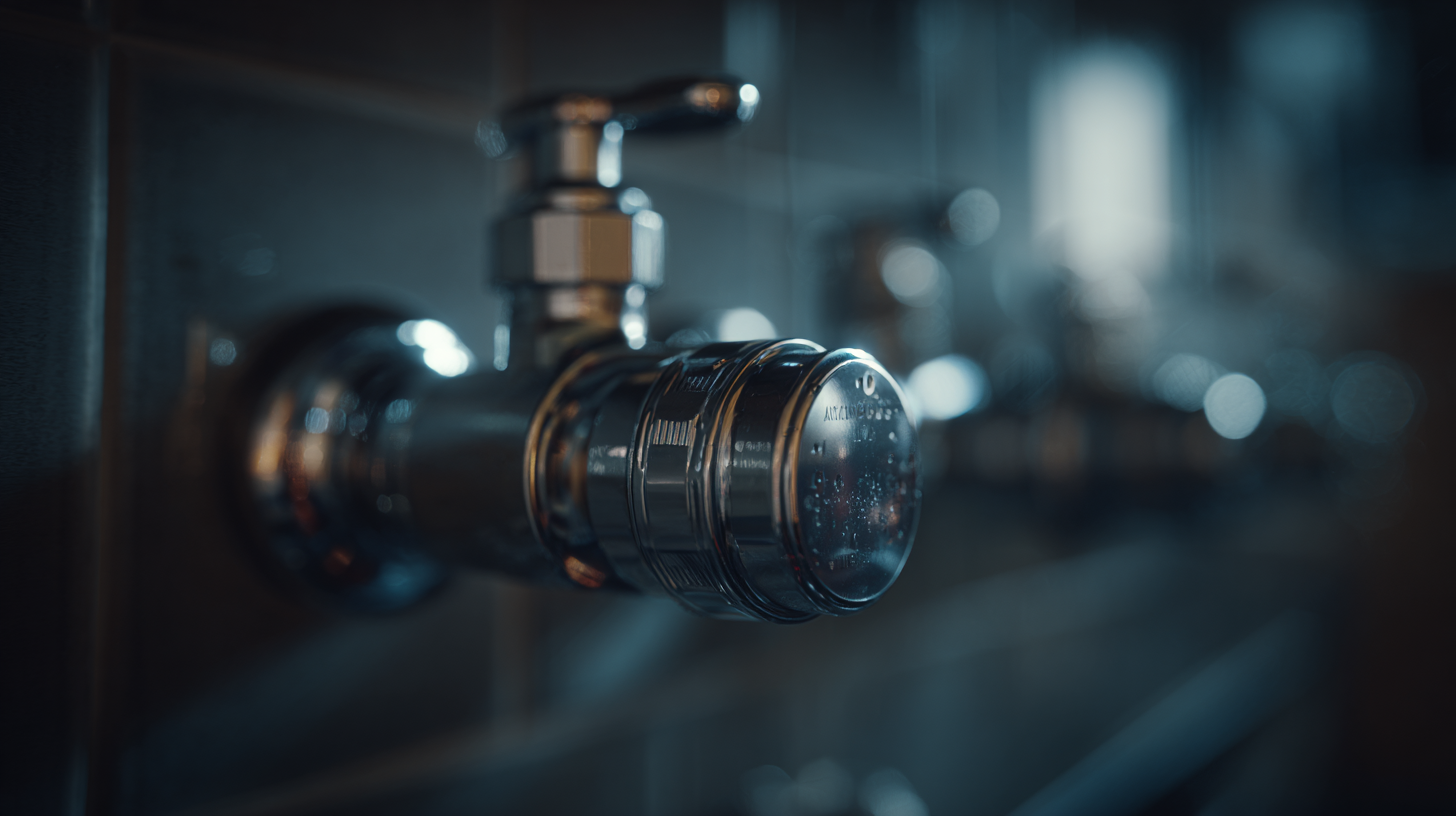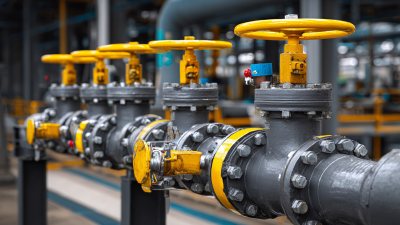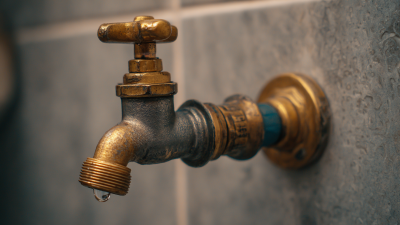Best Home Valves for Energy Efficiency in 2023 Based on Industry Data
In the evolving landscape of home energy efficiency, selecting the right components is crucial for optimizing both performance and savings. Among these components, home valves play a pivotal role in regulating water flow and maintaining desired temperatures within a household. According to a recent report by the Department of Energy, efficient valve systems can lead to energy savings of up to 30% in residential settings. The importance of integrating technology into home systems is reflected in the projected market growth for energy-efficient valves, which is expected to reach a valuation of $3.5 billion by 2025.
As we analyze the best home valves for energy efficiency in 2023, it becomes clear that trends indicate a shift towards smart technology. These innovations not only enhance user control but also significantly reduce wasted energy. A 2022 study by the International Energy Agency found that homes equipped with advanced valve systems can reduce greenhouse gas emissions by approximately 25%. This highlights the critical intersection of sustainability and functionality in home design. Therefore, our examination focuses on identifying the top-performing home valves that align with current industry data and consumer demands, paving the way for smarter homes in the future.

Top Energy-Efficient Valve Technologies of 2023
As energy efficiency becomes a priority for homeowners and industries alike, 2023 has seen significant advancements in valve technologies designed to optimize energy consumption. One of the top innovations this year includes electronically actuated valves, which provide precise control over fluid dynamics. Utilizing advanced sensors and controls, these valves can adjust flow rates automatically based on real-time system needs, resulting in improved efficiency and reduced energy costs.

Another noteworthy technology is the integration of smart valves with IoT capabilities. These valves can be monitored and controlled remotely, allowing for better management of energy usage and minimizing waste. With predictive maintenance features, smart valves can alert users to potential issues before they lead to energy losses, further enhancing overall system performance. The combination of electronic actuation and smart technology represents the cutting-edge of energy-efficient valves in 2023, giving homeowners powerful tools to reduce their carbon footprint while enjoying increased reliability in their systems.
Key Features to Consider for High-Performance Home Valves
When selecting high-performance home valves for energy efficiency in 2023, there are several key features to consider. One of the most critical aspects is the valve's flow rate, as it directly impacts the energy consumption of your home. According to a recent industry report, optimizing flow rates can reduce water usage by up to 30%, leading to significant savings on utility bills. Additionally, choosing valves with smart technologies can further enhance efficiency, as they allow for real-time monitoring and adjustments based on household demands.
Tip: Look for valves with automated or electronic control options that can adapt to changing usage patterns. This not only improves comfort but also maximizes energy savings.
Another important feature is the construction material. High-quality materials like brass or stainless steel provide better durability and resistance to corrosion, which can prolong the valve's lifespan and maintain performance efficiency. A study highlighted that homes using durable valves reported an average increase of 15% in overall energy savings, compared to those with lower-quality options.
Tip: Always verify the materials and certifications of your valves to ensure they meet industry standards for energy efficiency and safety.
Comparative Analysis of Leading Home Valve Brands
The competitive landscape of home valves demonstrates significant variations in energy efficiency among leading brands in 2023. Brands like Delta and Moen have emerged as frontrunners, consistently offering products that not only reduce water usage but also enhance energy conservation. Delta's innovative technology focuses on precise water flow control, which minimizes waste while ensuring optimal performance. In contrast, Moen emphasizes the integration of smart technology, allowing users to monitor and manage their water consumption seamlessly.

Another noteworthy player is Kohler, which combines style and sustainability with its range of eco-friendly valves. Their emphasis on durable designs and low-flow capabilities ensures that customers can achieve energy efficiency without compromising on aesthetics. Similarly, American Standard has garnered attention for its reliable and efficient valve systems; their products are engineered to meet stringent environmental standards while delivering robust performance. The comparative analysis of these brands highlights the importance of selecting valves that not only meet individual preferences but also contribute meaningfully to energy savings in the home.
Consumer Insights: Choosing the Right Valves for Your Needs
When selecting home valves for energy efficiency, consumer insights play a crucial role in making the right choice for your needs. It’s essential to understand your specific requirements, whether it’s for heating, cooling, or plumbing applications. A valve that fits your system can greatly enhance efficiency, leading to lower energy bills and prolonged equipment life.
Tips: Always consider the compatibility of the valve with your existing system. Research the different types of valves, such as ball valves, butterfly valves, or gate valves, and assess their performance ratings based on industry data. Pay attention to energy efficiency certifications, which can guide you toward the most reliable options available.
Another key factor is user feedback. Many consumers share their experiences online, offering insights into the durability and functionality of various valve models. Look for reviews that highlight long-term use and any maintenance issues.
Tips: Engage with these reviews to identify common themes regarding ease of installation and operation. It’s beneficial to choose valves from reputable brands that provide warranties and customer support, ensuring you are well-supported post-purchase. Making informed decisions based on both research and actual user experiences will lead you to the best valve solutions for your home.
Cost-Saving Benefits of Upgrading to Energy Efficient Valves
Upgrading to energy-efficient home valves can lead to significant cost savings for homeowners. According to a report by the U.S. Department of Energy, using more efficient valves can reduce energy consumption by up to 20%, translating into savings of hundreds of dollars annually on utility bills.
This reduction is particularly impactful in systems such as heating, ventilation, and air conditioning (HVAC), where valves control the flow of air and water, optimizing system performance.
In addition to direct energy savings, energy-efficient valves often have longer lifespans, which lowers replacement and maintenance costs. A study published by the American Society of Heating, Refrigerating and Air-Conditioning Engineers (ASHRAE) found that these valves not only improve system efficiency but also enhance reliability, leading to lower downtime and repair expenses.
By investing in energy-efficient valve technology, homeowners can experience both immediate financial benefits and long-term performance improvements, reinforcing the importance of making smart choices in home systems management.
Related Posts
-

How Automatic Valves Revolutionize Industrial Automation: A Comprehensive Guide
-

Unveiling the Benefits of 4 Check Valve in Industrial Applications with Expert Insights
-
The Complete Guide to Understanding Lever Valves and Their Applications in Modern Engineering
-

Unlocking Efficiency: How Lever Valves Can Reduce Energy Consumption by Up to 30% in Industrial Applications
-

Understanding the Importance of Shut Off Valves in Home Plumbing Systems: A Comprehensive Guide
-

How to Choose the Right Lever Valve for Optimal Fluid Control in Industrial Applications

